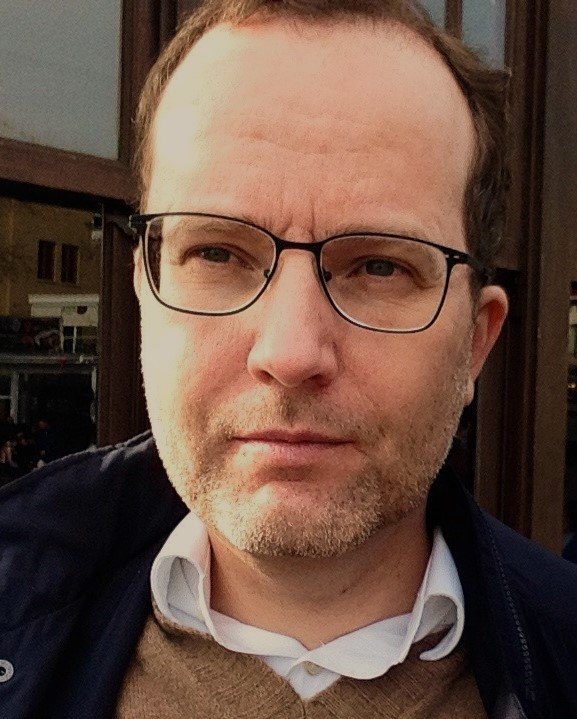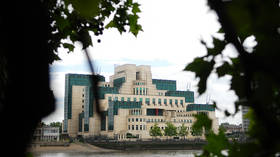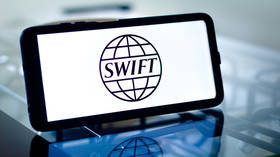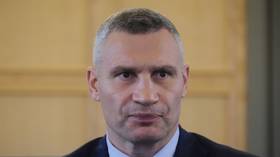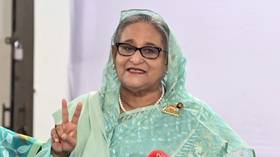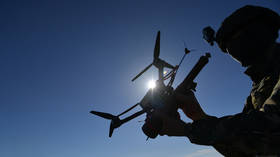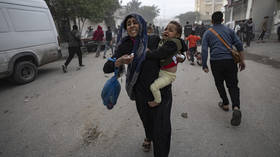Russophrenia: The West can't decide whether Russia is a pussycat or a lion
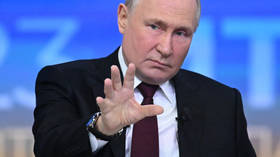
Here’s a little experiment that you can replicate at home: Type ‘Russia Danger’ into Google (or Bing, or whatever search engine you like, but it probably has to be in English or another NATO-affiliated language; say German or French or Polish). Peruse the results.
Then type ‘Russia Weak’ and repeat.
Funny, isn’t it? Both searches will net you a rich catch of links and titles, of opinion pieces, longform articles, surveys and so on, depicting a dangerous or a weak Russia, as the case may be. And many of those sources will be high-quality or, at least, thoroughly mainstream: Reuters, The Telegraph, The New York Times, NPR, reputable think tanks, institutes, and experts – that sort of thing.
In other words, the West is producing two roughly equally prominent narratives about Russia that are mutually exclusive. True, there are some attempts – vaguely reminiscent of medieval scholasticism – to reconcile them. Almost a year ago now, Reuters, for instance, ran the headline that “even a weak Russia is a problem for Europe.”
How convenient from a Western point of view! That way, you can have your triumphalism (because the phrase “Russia weak” here, of course, implies “West strong”) and, at the same time, you can still spread the fear of big bad Russia, with all that means for intra-NATO politics (i.e. US dominance), military budgets, and arms manufacturers. The latter have been doing very well out of yet another war that has – surprise, surprise – turned out to be a racket, in the famous words of US Marine Major General Smedley Butler.
Yet, on the whole, we are looking at a stark contrast. You may think that this is simply reflecting a healthy debate, with two opposing opinions clashing or that differences are due to time passing and things, especially in Ukraine, changing on the ground. To an extent, you’d be right: It is obvious, for instance, that the Western mood has become more pessimistic after the failure of Ukraine’s summer counteroffensive had to be acknowledged.
But the above is far from the whole explanation for the striking Western bipolarity (to use a term from clinical psychology) about Russia. For as so often with Western narratives about that country, they may not help you much to understand the real Russia, but if you read them against the grain, they can tell you a lot about the West’s imaginary Russias (yes, there is more than one). And that, in turn, offers some timely insights into the real West.
Let’s look at a sample of points habitually made about Russia in the two big Western narratives.
For ‘Russia Danger’ we get: obsessively imperial (wants the Soviet Union back or, at least, something similarly dominant); supremely devious (never means what it says and not even the opposite, either); very subversive (able to make or break American presidents, for instance); militarily powerful and ruthless (its forces are battle-hardened and learning, its weapons advanced and adaptable, and, worst of all, its war economy is effective – unlike the West’s); well-connected (it gets ammunition from North Korea, sells oil to India, China just won’t stop siding with it, and, exasperatingly, much of the world is not heeding the West’s command to isolate it); and last but not least, politically “totalitarian,” of course (just disregard here that that term makes absolutely no sense with regard to Russia now).
For ‘Russia Weak’ we find: Not all it’s cracked up to be and really just a fraud (this is where almost no one can resist that deadly tired cliche about “Potemkin” this and “Potemkin” that); primitive in terms of, well, really, everything: values, politics, organization, technology (Remember German Foreign Minister Annalena Baerbock’s Wayward Washing Machine Theory regarding how Russians get their microchips? No? Lucky you.); savage (This one easily blends with “primitive,” of course – see under “Russian soldiers without guns but with sharpened shovels”); isolated (at least by the very proper crowd in the West), and, last but not least, always brimming with repressed popular discontent and, potentially at least, on the verge of color revolution and regime change (so to speak, authoritarian enough to condemn, but terribly bad at that, too – see under “Potemkin” and “primitive”).
We could refine the picture, but the outlines should be clear enough. And here is what it reveals: what is behind the West’s two Russias is not merely a debate or differences of opinion and assessments, but the latest iteration of a deep cultural pattern with a long history, reaching back to, at least, the moment when Peter the Great gate-crashed the European Great Power club in the early 18th century.
On one side, the West loves to imagine Russia in what – after the great Palestinian-American scholar Edward Said – we have learned to call an Orientalist framing, as a Backward Other: a part of that perennial fantasy ‘East’ that the West simply can’t imagine – or accept – as its equal. That’s the root of all those descriptions of today’s Russia as a kind of shovel-wielding gas station running on empty (if you will forgive a metaphor as muddled as the thinking it designates).
But there is another powerful register in the West’s Russia imagination: the Sinister Other. Whereas in the Orientalist key, Russia is ultimately always seen as reassuringly weak, the Sinister Other is different: a kind of evil mirror image of the West’s self-idealization, this Russia appears as modern, wielding up-to-date means of power across multiple domains from information, to the economy, to the battlefield. The Sinister Other can also mobilize its population well; it has, like the West, solved the political challenge of bringing the masses into politics, only in a way the West likes to imagine as morally inferior to its own brand of manufacturing consent.
Consider the issue of how Russia has been fighting the current war between it, on one side, and Ukraine and (de facto) NATO on the other. Initial – and gleeful – Western observations about Moscow’s mistakes and predictions that, with its call-up of September 2022, Moscow would fall flat on its face and even trigger large-scale rebellion, if not revolution, were a classic example not only of wishful groupthink but of the Orientalist, Backward-Other register. Put crudely: “Those Russians just can’t hack it, because – they are Russians.”
Yet, when Russia did succeed in mobilizing and also adjusted its military tactics, at least some Western perceptions shifted into the Sinister-Other key: as Barry R. Posen, an unusually perceptive Western observer wrote in Foreign Affairs, “the most alarming thing about Russia’s bombing campaign is that Moscow knows what it is doing.” Indeed. But where’s the news?
It is crucial to understand that this Western pattern is not merely about passive observation. On the contrary, there is a proactive aspect to it: We can read the last decades, essentially since the end of the Soviet Union, as marked by the West’s obstinate attempt to not only imagine Russia as backward and weak. Rather, Russia – and Russians – were supposed to fit that image: Under Western eyes, Russia was to be relegated in the real-existing hierarchy of international politics – a big country (and market), sure, but still one that, when push comes to shove, can be coerced and even defeated. And because Moscow has resisted this demotion successfully, Russia is now the Sinister Other again.
That shift illustrates the single most depressing thing about the West’s views of Russia: the West may change its tone from time to time, it may even produce two very different, mutually exclusive narratives about Russia at the same time, when stuck in a moment of transition or confusion. But it never actually learns. All it does, collectively and with all too few exceptions, is alternate between different frameworks of stereotypes. What a missed opportunity. Again and again.
The statements, views and opinions expressed in this column are solely those of the author and do not necessarily represent those of RT.
